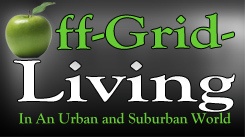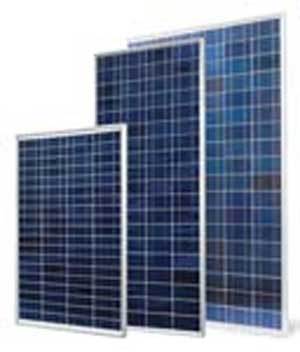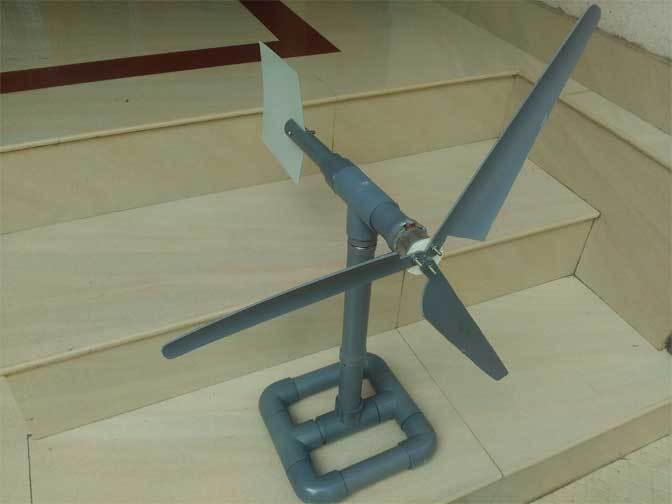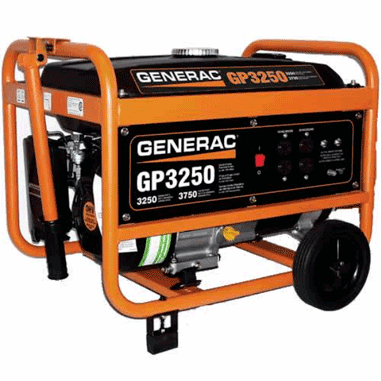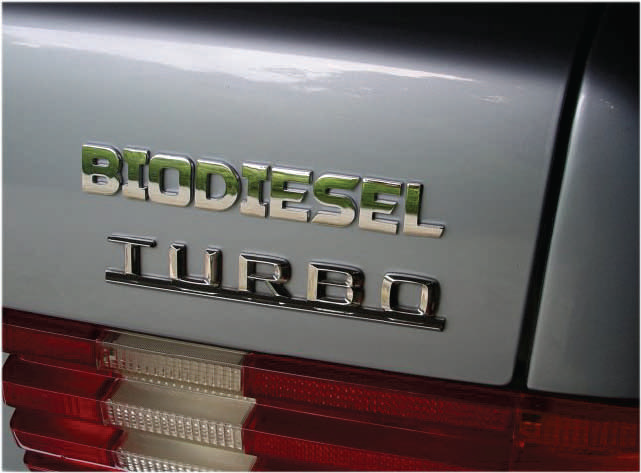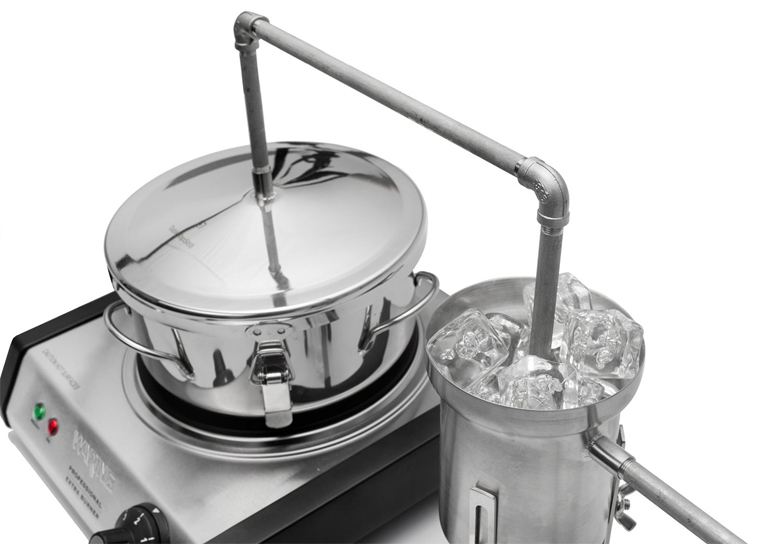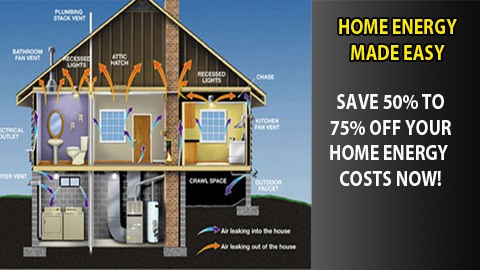
“A society grows great when old men plant trees whose shade they know they shall never sit in.”
Chinese Proverb

Urban homesteading means different things to different people. It might focus on several unique issues: services by local, state, and federal agencies in the United States which try to assist folks back into urban houses, squatting, applying urban agriculture, or practicing eco-friendly living techniques.
For the purpose of this website urban homesteading refers to legally occupied premises in which the owner uses everything in his means to reduce their exposure to the negative effects of urban dwelling. Instead, the urban homesteader, “goes off the grid” in terms of food, utility, and mortgage payments using legal means at his disposal.
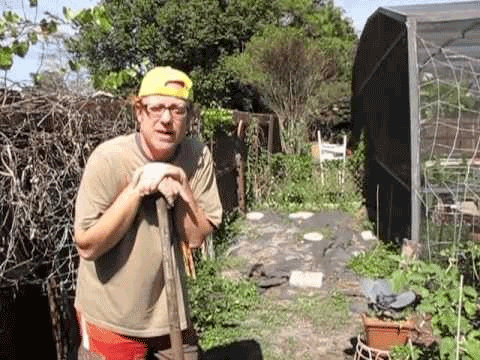
Urban homesteading and affordable housing
Urban American cities, for example New York City, used plans of urban homesteading to stimulate people to undertake and repair empty houses. Guidelines by the U.S Department of Housing and Urban Development permitted government held houses to be offered to homesteaders for minimal amounts as little as $1, funded normally by the state, and assessed after a one-year time frame.
Backyard Homesteads were put to use in Detroit, but as of 2013 zoning legislation do not allow such undertaking in spite of talk to motivate more urban farming and battle the diminishing population.
Urban homesteading and agriculture
As outlined by UC-Davis, "an urban homestead is a household that produces a significant part of the food, including produce and livestock, consumed by its residents. This is typically associated with residents' desire to live in a more environmentally conscious manner."
Aspects of urban homesteading include
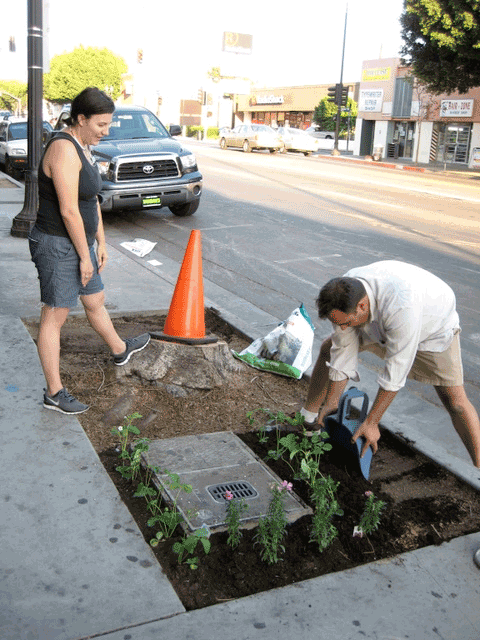
- Resource reduction: using solar/alternative energy sources, harvesting rainwater, using greywater, line drying clothes, using alternative transportation such as bicycles and buses
- Raising animals, including chickens, goats, rabbits, fish, worms, and/or bees
- Edible landscaping: growing fruit, vegetables, culinary and medicinal plants, converting lawns into gardens.
- Sufficient living: re-using, repairing, and recycling items; homemade products.
- Food preservation including canning, drying, freezing, cheese-making, and fermenting.
- Community food-sourcing such as foraging, gleaning, and trading.
- Natural building.
- Composting
Urban homesteading methods will often clash with existing city zoning restrictions and homeowner's association by-laws.
Urban homesteading is related to urban agriculture. Urban Homesteading might also be known as Backyard Homesteading and Hobby Farming.
Squatting
Squatting is the action of living in an deserted or vacant portion of land-or a building, generally residential, that the squatter doesn't own, rent or otherwise have legitimate approval to use.
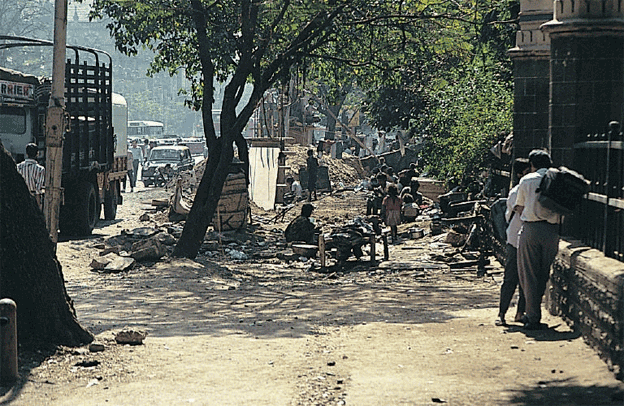
Author Robert Neuwirth suggested in 2004 that there were one billion squatters internationally. He predicts you will see two billion by 2030 and three billion by 2050.
However, according to Kesia Reeve, "squatting is largely absent from policy and academic debate and is rarely conceptualized, as a problem, as a symptom, or as a social or housing movement."
Squatting might also be linked to, and used by, political movements, such as Occupy Wall Street. Squatting by necessity is in itself a governmental concern, consequently another "statement" or rather a 'response' to the political process creating it.
Throughout the global economic downturn and heightened real estate foreclosures in the 2000s, squatting became much more common in Western, developed nations.

“Remember that children, marriages, and flower gardens reflect the kind of care they get.”
H. Jackson Browne

10 tips for Getting Started in Urban Homesteading Today
Today's urban homesteading is a new version of the old theme. The concept of homesteading is not new, but recently, along with the state of the economy, interest in homesteading is gaining a new life, and many interested people live in cities.
Looking at a self-sufficient lifestyle. Growth and reproduction of a large part of our own food and less dependence on external systems today are a large part of urban development. People turn their yards into farms, not only growing feed, but also raising chickens, goats and rabbits
There are some issues in urban homesteading , and here are tips to help you get through some of them. You want to be self-sufficient, but you are surrounded by acres of concrete, not acres of open land. How to fulfill this desire without moving to the country? There are things you can do when you live in a city to develop your independence skills and thus save money, to help you get out of debt and / or buy a place in the country if you really want to.
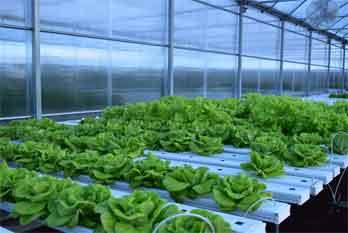
10 Tips to Start an Urban homestead
Organize your life.
We live in a world of excess and so much is useless. Learning how to deal with what you have and being creative with what you have does not allow you to spend more than you need, and selling things you don’t use or that you need will help you pay with debt or save money for the future.
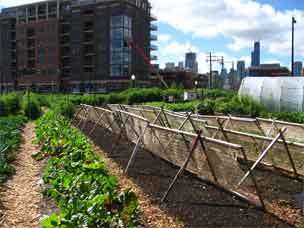
Homesteading means doing things yourself.
You can make your own soap from simple, easily accessible ingredients. You can also create your own candles. You can buy cereals locally or online and leave them to use. If you have a grain mill, you can use it to make your own bread from start to finish. The opportunity to do these things for yourself will bring some satisfaction, which would not have been achieved otherwise, and you will also be pleasantly surprised by saving a lot of money.
Urban Homesteads don't need a lot of land
Many people think that if you do not have land, you cannot have a garden. This is not so, because you can create an edible garden that consists of plants grown only in containers.
The size and shape of the container can vary from pots to barrels or a large container, and you can grow tomatoes, lettuce, pumpkin and more in containers.
You have the advantage that you do not need to do as much cleaning and maintenance as you need to water. If you have a good plan, you can grow a lot in a small space. Be creative using this space and use everything you can.
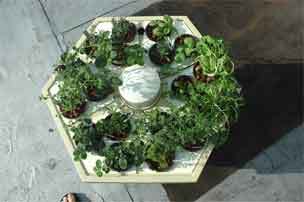
Keep a small number of farm animals.
Yes indeed. You may have chickens and / or rabbits in many urban settings that you can use as compost in the garden. Chickens can give eggs, and you don't need a cock. Rabbits can be a source of meat. They are quiet and reproduce very quickly. Both animals will benefit from your home and you will save money again at the grocery store.
Backyard homesteads make use of solar energy
Create and use a solar furnace. This is a great way to save energy costs and will do a great job for you. You can also add a 100-meter black hose to a hot-water solar water heater. Attach one end to the water inlet, turn the hose to the roof, and the other end to the hot water heater. All water passing through the hose will be heated by the sun when it is shining.
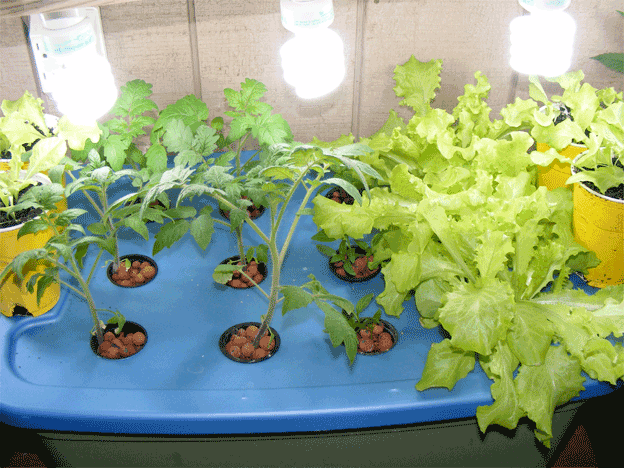
Keep track of your finances
Take the time to write down what you need for work, your things, regardless of the cost of development, you can sell your garage for things that will not help you in urban life, but can help get you out of debt. You may have an old steam trap in the garage that you forgot.
Write down your skills and experience.
You may be surprised at some things that you can reveal your whole life. Maybe you helped your mom or grandmother with canning when you were a kid.
Know the exact state of your finances.
If you have debts, start getting rid of them. Mortgages can be another problem, although paying off them at some point should be the goal, but the debt that you need to get rid of is consumer debt. Credit cards, car payments, stereo loans, everything that costs every month. The more you have to pay your credit company, the less you need to change your life.
Get rid of unnecessary expenses
such as room subscription, cable etc. If you have a debt, use the amount you would pay for these expenses to pay off your debt. You will be pleasantly surprised at how you will feel when you are out of debt. This way, you will get rid of one of the modern systems.
Conclusion
Once you know where you are and what you need to work on, where do you want to go? What makes sense to you? You should arrange a garden in any available space. Will you make your own clothes? Will you use solar and wind energy to free yourself from energy dependency? Will you add chickens and other farm animals as much as you can? What is the most important and / or easiest thing to start doing now? Most people can start a certain level of gardening by working on their duty.
Once you have established where you are and where you want to go, you can start setting short, medium and long term goals to reach your goal. one of the first main goals should be to get rid of debt and there are things you can do that will help you reach that goal, as well as another, such as gardening. You won't have to pay in the store for everything you can eat out.
To summarize, if you want to do urban homesteading today, specify where you are now, where you want to go, then set goals and follow the appropriate steps to get where you want. The reward will be a certain level of self-sufficiency, be it partial or complete

Solar Hot Water Collector: The Best Guide to Building and Installing a Solar Hot Water System
Hello there, fellow solar enthusiasts! It’s great to be talking with you

Hybrid Solar Wind Power Generation System: Best Comprehensive Guide to Building Your Own Renewable Energy Solution
Hello there! If you are looking for an alternative energy source that

Solar Heating System: Best Comprehensive Guide to Building and Installing a Solar Heating System
As a solar heating system expert, I have seen firsthand how this

Solar Cooling: How to Keep Your Home Cool with Solar Energy?
Hey there, folks! As a solar cooling consultant with years of experience

Stand Alone Solar Power System: How to Build an Off-Grid Solar Power System for Your Home?
As the demand for sustainable energy solutions increases, stand alone solar power

Solar Heating Systems: The Different Types and Benefits Of Solar Heating Systems
As a solar heating systems expert, I know that these innovative technologies
You also might like this FREE eBook. Click here
You Also Might Be Interested in...
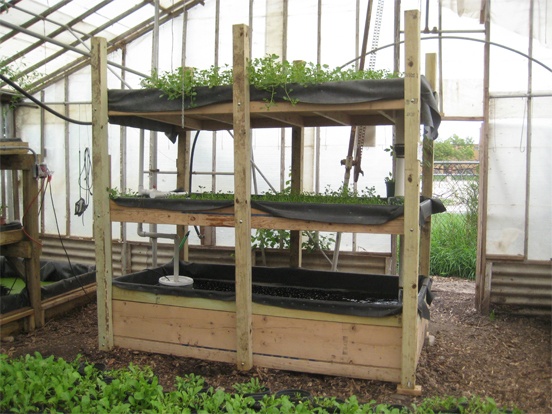
Aquaponic is a marriage between fish farming and hydroponics. Protein and vegetables in one unit
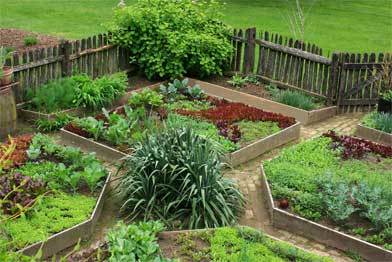
With urban gardening you can transform even the smallest piece of land into a food farm for your family.
